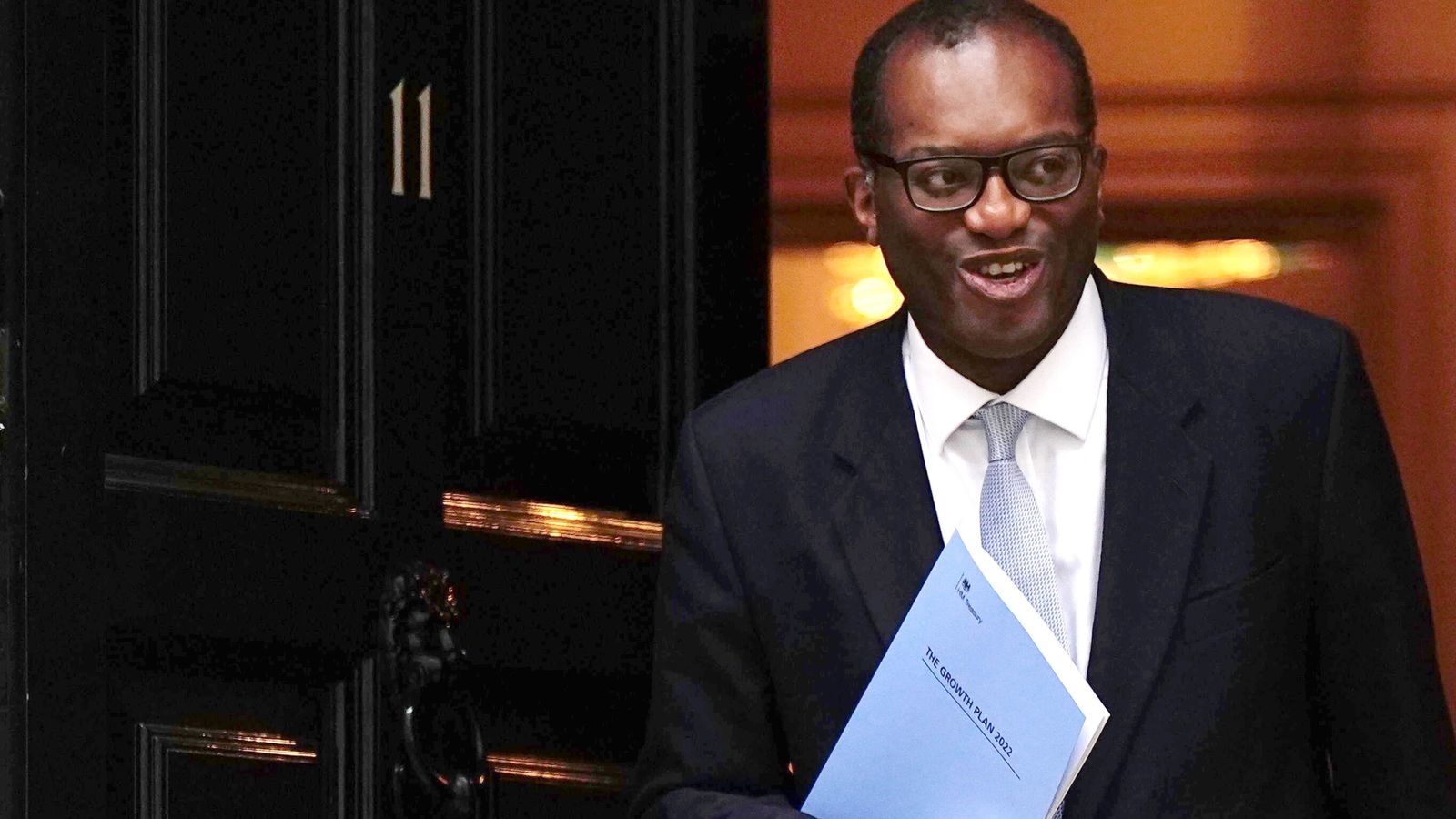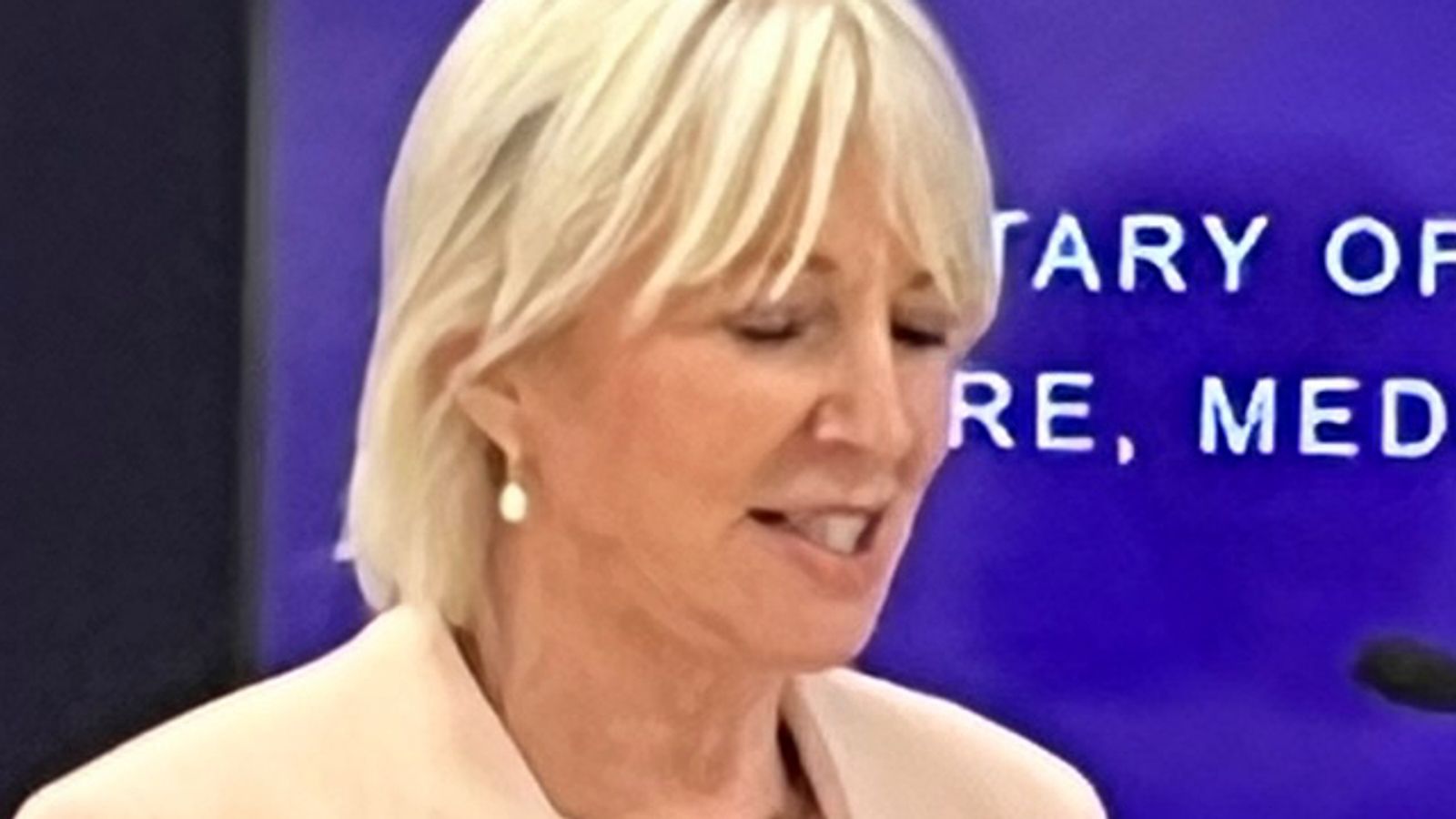Discussions are under way in Downing Street over whether to scrap some of the contentious proposals in the chancellor’s tax-cutting mini-budget, Sky News understands.
The proposed changes to corporation tax and dividend tax are understood to be under discussion.
Downing Street insisted earlier on Thursday that there will be no more U-turns on policies in the government’s tax-cutting mini-budget.
Truss is out ‘and we have the numbers’, says Tory MP – politics latest
Asked if there will be no further reversals to the government’s mini-budget, the prime minister’s official spokesman said: “Yes, as I said to a number of questions on this yesterday – and the position has not changed from what I set out to you all then.”
Pressed on whether Liz Truss is committed to the timeframes set out for measures in the economic plan, the spokesman said: “Yes, and obviously as you know the date for the medium-term fiscal plan has been brought forward.”
The prime minister faces open revolt in her party over the government’s £45bn package of unfunded tax cuts, which unleashed chaos in the markets after it was announced last month.
Ms Truss and Kwasi Kwarteng, the chancellor, have said the cuts are needed to get Britain’s economy growing again, as data published on Wednesday suggested the country is heading for recession.
Mr Kwarteng will set out his debt-cutting plan in more detail on 31 October, having bowed to pressure to bring the date forward from 23 November after the economic turmoil unleashed by his mini-budget.
On Thursday morning James Cleverly, the foreign secretary, refused to commit to the government seeing through all the tax cuts proposed in the chancellor’s contentious mini-budget.
He told Sky News: “the package the chancellor put forward is pro-growth and is the right answer”.
But asked if there will be no more reversals of policy, Mr Cleverly told Kay Burley: “The chancellor is making a statement on the 31 October which gives a more holistic assessment of the public finances and our response to the global headwinds that every democracy, every economy in the world is facing.”
Please use Chrome browser for a more accessible video player
Asked again about whether the government will be sticking to its tax-cutting mini-budget, the foreign secretary said that “ultimately, that mini-budget was about protecting tens of millions of people from unaffordable energy prices”.
Pressed specifically on the government’s plan to axe the increase in corporation tax from 19% to 25% in April, Mr Cleverly said it is “absolutely right” the government helps businesses to “stay competitive” and “stay afloat”.
“We have got to make sure we can compete internationally with the other places businesses can choose to locate. We have got to make sure we are tax-competitive,” he added.
The Treasury had vowed to reduce the rate of income tax on dividends by 1.25 percentage points.
Mr Kwarteng is meeting with International Monetary Fund (IMF) leaders in Washington DC today, after the institution’s chief economist said tax cuts threatened to cause “problems” for the UK economy.
Please use Chrome browser for a more accessible video player
The IMF has said Britain’s priority should be tackling inflation rather than adding to the price problem through tax giveaways to achieve economic growth.
The prime minister and her chancellor have already been forced into reversing one of the many tax-cutting policies within their plan – scrapping the 45p tax rate for the highest earners.
In her first PMQs since the mini-budget last month, Ms Truss yesterday pledged not to cut public spending to balance the books – despite a leading economics-focused think tank warning the government is billions short of the sums needed.
Read more:
What on earth is happening in UK markets?
What are bonds and where do they fit in the mini-budget crisis?
The Institute for Fiscal Studies has said the government would have to cut spending or raise taxes by £62bn if it is to stabilise or reduce the national debt as promised.
On Wednesday, Mel Stride, the Tory chairman of the Commons Treasury Committee, said that given Ms Truss’s commitments to protect public spending, there was a question over whether any plan that did not include “at least some element of further row back” on the tax-slashing package can reassure investors.
Please use Chrome browser for a more accessible video player
While David Davis, the Tory former minister, called the mini-budget a “maxi-shambles” and suggested reversing some of the tax cuts would allow Ms Truss and Mr Kwarteng to avert leadership challenges for a few months.







